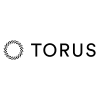Dive Brief:
- New Jersey bill A-2420 would allow net metering for solar owners until 7.5% of the state’s peak demand is met by solar, dramatically raising the current 2.5% limit. The bipartisan bill was proposed by Democratic and Republican leaders on the State Senate Energy and Environment Committee.
- Solar advocates say A-2420 will pass both houses of New Jersey’s legislature and be signed into law by Republican Governor Chris Christie.
- Utah’s 20% net metering cap, through Rocky Mountain Power, is the U.S. high. Vermont recently increased its cap to 15%, California is at 5%, and New York, Massachusetts, West Virginia, and Nevada have 3% caps.
Dive Insight:
Christie just demonstrated his continued support for renewables with the appointment of state Assemblyman Upendra Chivukula, a strong proponent of renewables and of New Jersey's participation in the Regional Greenhouse Gas Initiative, to the Board of Public Utilities.
Net metering allows utility customers who generate electricity with distributed generation like rooftop solar to be paid at a per kilowatt-hour retail rate for the power they send to the grid. After three big power outages in the last three years, New Jersey consumers are increasingly installing distributed generation to have a backup resource that protects them when the grid fails.
The bill could increase solar installations above the amount needed to meet the state’s renewables mandate and could therefore compromise the value of renewable energy credits but that is considered unlikely because of New Jersey consumers’ commitment to solar.














